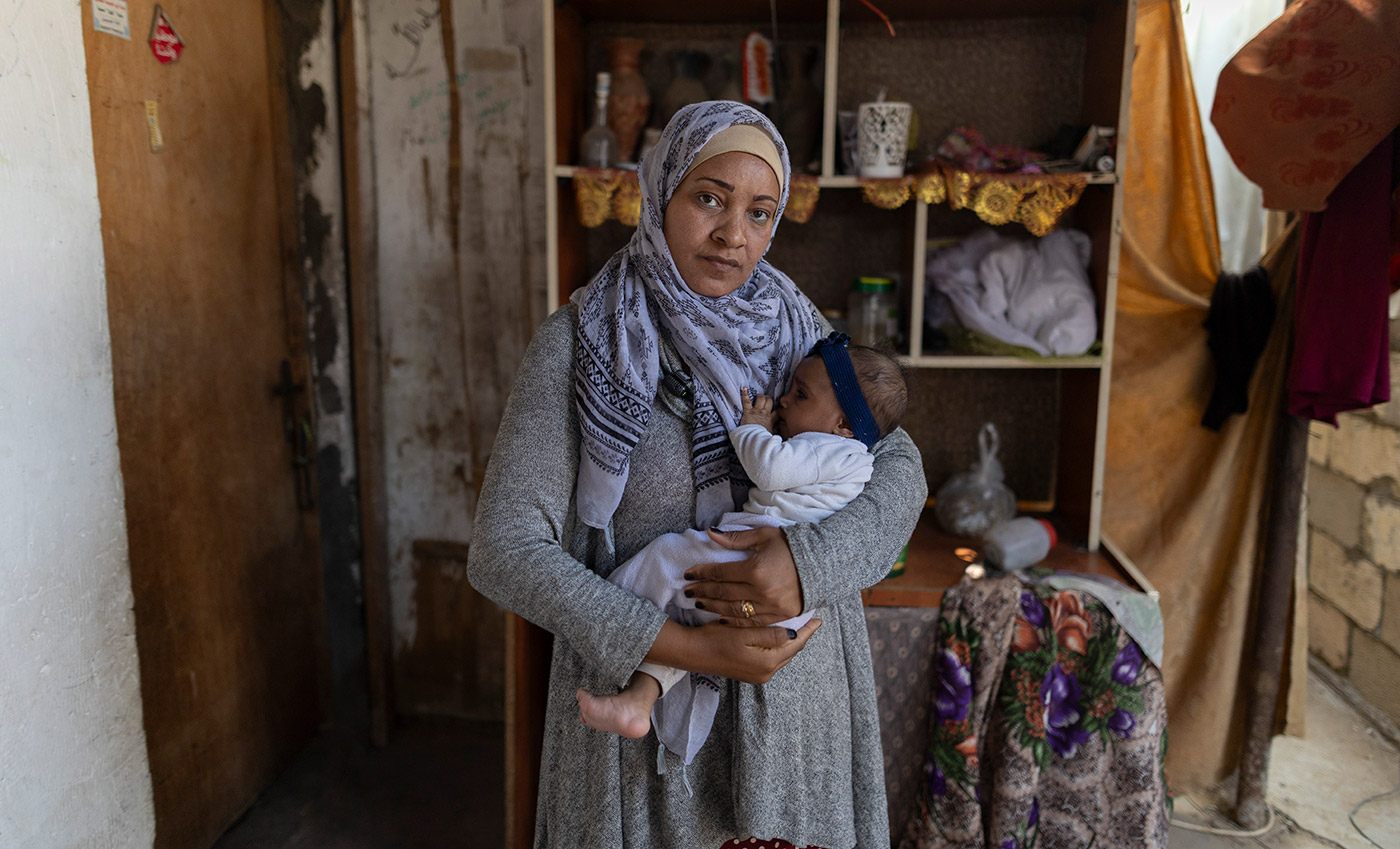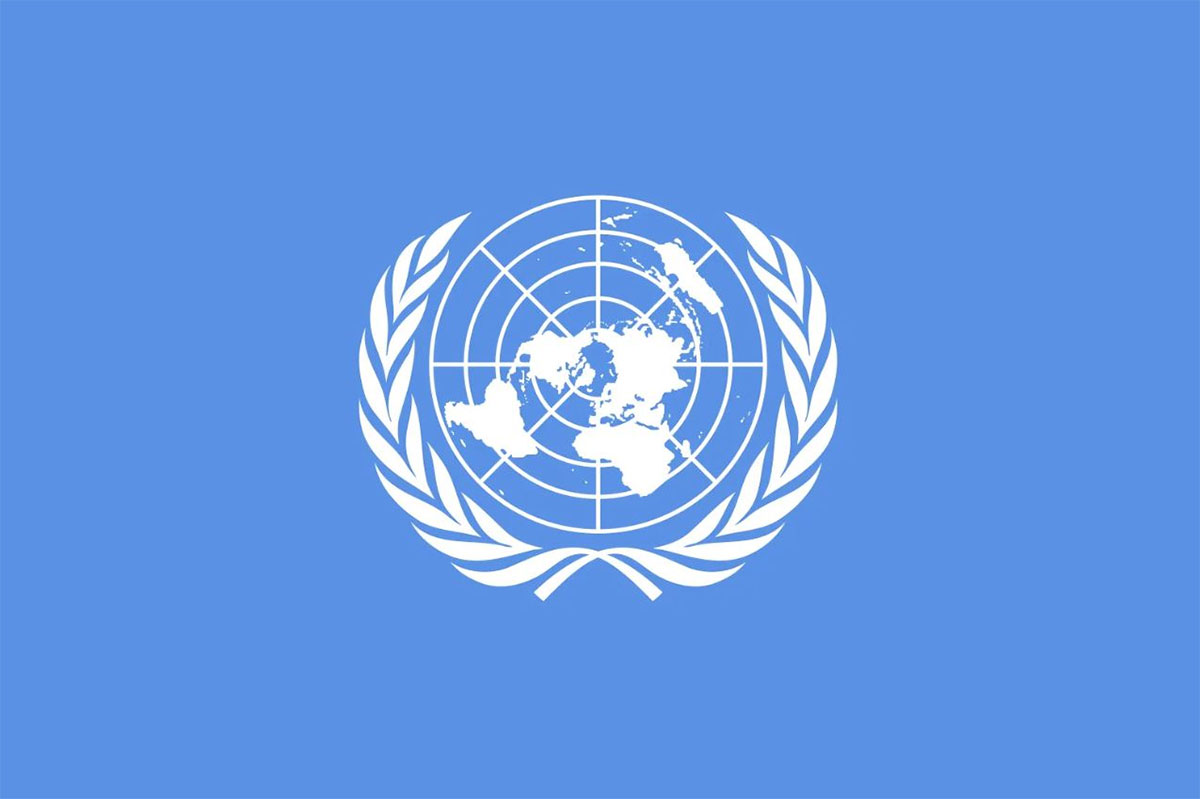Healthy Beginnings, Hopeful Futures - On World Health Day WHO calls for an immediate ceasefire in Gaza

Jerusalem, Cairo, Geneva, 7 April 2025 - On World Health Day, with the theme “Healthy beginnings, hopeful futures,” the Gaza Strip continues to be one of the most dangerous places to be a child and where pregnancy is clouded by fear due to ongoing violence, displacement and lack of medical access.
Between 18 March and 4 April 2025, since the resumption of hostilities, reportedly more than 500 children and 270 women have been killed. No aid has entered Gaza since 2 March 2025, deepening the hunger and malnutrition crisis, leaving families without clean water, shelter, and adequate health care, and increasing the risk of disease and death.
An estimated 55 000 women are pregnant in Gaza, with one third facing high-risk pregnancies. Around 130 babies are born each day, 27% by caesarean. Approximately 20% of newborns are pre-term, underweight, or born with complications, needing advanced care that is rapidly diminishing.
The fragile health system is overwhelmed by the influx of casualties, including among children. Essential medicines, trauma and medical supplies are rapidly running out, threatening to reverse hard-won progress rehabilitating hospitals and keeping them operational. Evacuation orders and attacks on health further restrict access to health care and risk closure of hospitals and medical facilities.
Due to the aid blockade, WHO’s supplies for maternal and child health, including for cesarean sections, anesthesia for delivery and pain management, intravenous fluids, antibiotics, and surgical sutures, are critically low. Blood units needed for complicated deliveries are in extremely short supply. Partners report that essential equipment and medicines, such as portable incubators, ventilators for neonatal intensive care, ultrasound machines, and oxygen pumps, along with 180 000 doses of routine childhood vaccines — enough to fully protect 60 000 children under the age of two — have not been permitted to enter, leaving ill newborns and young children without the life-saving care they urgently need.
The food shortage is deepening the crisis and threatens to reverse the progress made in food security during the ceasefire. Mothers and children are hit hard. A recent Nutrition Cluster analysis found that between 10 to 20% of 4500 surveyed pregnant and breastfeeding women are malnourished. The closure of 21 outpatient malnutrition treatment sites, due to insecurity or evacuation orders, has disrupted life-saving care for over 350 acutely malnourished children and has severely limited the ability to detect and treat new cases.
Despite security risks and access restrictions severely hampering WHO’s response, efforts to support health facilities and strengthen maternal and child health services continue amid dwindling supplies. Focus is on the delivery of essential medicines, equipment, and supplies, training of health workers, and deploying emergency medical teams to enable safe deliveries and care for sick children.
WHO urgently calls for the lifting of the aid blockade, the protection of health care, unimpeded humanitarian access across Gaza, the immediate resumption of daily medical evacuations, release of hostages, and a ceasefire that paves the way for lasting peace.
Related links
https://www.who.int/emergencies/situations/conflict-in-Israel-and-oPt
The European Union and the World Health Organization sign an agreement of EUR 2.88 million to support the Palestinian Health System
Jerusalem, 26 June 2024, the European Union and the World Health Organization signed an agreement to strengthen the health financing system and rationalize medical referrals, while protecting the poor and vulnerable patients. The agreement was signed at the Palestinian Prime Minister Office in the presence of the Palestinian Minister of Health Dr Majed Abu Ramadan and Minister of Finance, Mr Omar al-Bitar.
The agreement aims to support the efforts of Ministry of Health in ensuring equitable access to quality health care services to all Palestinians, amid the challenging financial situation and the consequences of the war in Gaza.
The action will address the unsustainable financing of the health sector and the increasing financial burden of the medical referrals. It will foster policy dialogue on rationalizing health expenditures and improving efficiency of the health system. The action will also focus on strengthening the governance of the medical referral system to be more efficient, transparent and fairer to all patients, in addition to strengthening medical specializations at public hospitals to rationalize medical referrals.
“The European Union reiterates once again its commitment to support the Palestinian Authority in improving its public services. For years, the EU has worked towards ensuring access to quality health care services through direct financial support to the Palestinian Authority for the cost of medical referrals to East Jerusalem Hospitals. This new partnership with the World Health Organization will help the Palestinian Authority in its efforts to reform the health system towards a more sustainable, efficient and equitable system" said the European Union Representative, Alexandre Stutzmann.
“WHO is grateful to the European Union for its longstanding partnership. This project will support the Ministry of Health in implementing its health financing reform priorities, including improving the performance of the referral system. It will also assist in revising the essential health package to guide the investment in health services and strengthen economic analysis within the Ministry of Health to inform future prioritization and planning” said the Representative for WHO in the occupied Palestinian territory, Richard Peeperkorn.
Background:
The project is funded by the EU and will be implemented by the World Health Organization. The project aims to strengthen the Palestinian health financing system and improve Outside Medical Referrals towards a more efficient and equitable system to contribute to universal health coverage, while preventing financial hardship for the poor and vulnerable population.
The project will address the unsustainable financing of the health sector and the increasing burden of the cost of medical referrals amid fiscal constraints. The project results will mainly focus on the following; a) evidence and strategy guidance made available for policy makers to make decisions for rationalizing health expenditures; b) the Outside Medical Referrals System will be strengthened through revised process, procedures and updated protocols adding more equity, efficiency and transparency to the referral process; c) the health benefit package will be revised and costed, which will support in redesigning the levels of care and organization of services leading eventually to meeting population needs in an efficient manner; d) capacities of health workforce will be developed in specific medical specializations, which shall help case treatment at public hospitals and reduce outside medical referrals; and e) capacity in data analytics and financial risk protection developed for informed health care policies and for better monitoring and transparency of the referral system.
Contacts:
The World Health Organization:
Bisma Akbar (02 5400595)
The Office of the European Union Representative
Shadi Othman (02 5415 867, 0599 673 958); Inas Abu Shirbi (02 541 5 859, 0599 673 957)
First phase of polio campaign concludes successfully in Gaza

4 September 2024, over 187 000 children under ten years of age were vaccinated with novel oral polio vaccine type 2 (nOPV2) in central Gaza during the first phase of a two-round polio vaccination campaign, conducted between 1–3 September 2024. Vaccination coverage in this phase exceeded the initial estimated target of 157 000 children due to population movement towards central Gaza, and expanded coverage in areas outside the humanitarian pause zone.
To ensure no child is missed in this area, polio vaccination will continue at four large health facilities in central Gaza over the next few days. Vaccine doses have been supplied to these sites to meet any additional needs.
“It has been extremely encouraging to see thousands of children being able to access polio vaccines, with the support of their resilient families and courageous health workers, despite the deplorable conditions they have braved over the last 11 months. All parties respected the humanitarian pause and we hope to see this positive momentum continue,” said Dr Richard Peeperkorn, WHO Representative for the occupied Palestinian territory.
The first phase of the campaign was conducted by 513 teams, consisting of over 2180 health and community outreach workers. Vaccination was provided at 143 fixed sites, including hospitals, medical points, primary care centres, camps where displaced people are living, key public gathering spaces such as temporary learning spaces, food and water distribution points, and transit routes leading from central towards northern and southern Gaza. Additionally, mobile teams visited tents and hard to-reach areas to ensure they reached families who were unable to visit fixed sites. The presence of a substantial number of children eligible for vaccination who were unable to reach vaccination sites due to insecurity, necessitated special missions to Al-Maghazi, Al-Bureij and Al-Mussader – areas just outside of the agreed zone for the humanitarian pause.
Preparations are underway to roll out the next phase of the campaign, which will be conducted in southern Gaza from 5–8 September 2024, targeting an estimated 340 000 children below ten years of age. Some 517 teams, including 384 mobile teams, will be deployed. Nearly 300 community outreach workers have already begun outreach to families in southern Gaza to raise awareness about the campaign, while 490 vaccine carriers, 90 cold storage boxes, and other supplies have been transferred to Khan Younis for distribution to vaccination sites.
The third and last phase of the polio vaccination campaign will be implemented in northern Gaza from 9–11 September 2024, targeting around 150 000 children.
At least 90% vaccination coverage during each round of the campaign is needed to stop the outbreak, prevent the international spread of polio and reduce the risk of its re-emergence, given the severely disrupted health, water and sanitation systems in the Gaza Strip. Vaccination coverage will be monitored throughout the campaign, and, when necessary, vaccinations will be extended to meet coverage targets as part of flexible strategies to ensure every eligible child receives their vaccine dose.
The two-round campaign, being conducted by the Palestinian Ministry of Health (MOH), in collaboration with the World Health Organization (WHO) and United Nations Children Fund (UNICEF), the United Nations Relief and Works Agency for Palestine Refugees (UNRWA) and many partners, aims to provide two drops of nOPV2 to around 640 000 children during each round.
"The successful delivery of the first phase of the campaign in central Gaza is a culmination of immense coordination among various partners, including the Global Polio Eradication Initiative (GPEI) and donors, and underscores the importance of peace for the health and well-being of people in Gaza. We call on all parties to continue fulfilling their commitment to the humanitarian pauses as the second phase of the campaign begins tomorrow,” said Dr Peeperkorn.
Notes to editors
The campaign is part of an urgent response to prevent the spread of polio after circulating variant poliovirus type 2 (cVDPV2) was detected in Gaza, after 25 years of being polio-free. cVDPV2 has been detected in six environmental samples – or wastewater – collected from central Gaza in June 2024. Gaza has reported four cases of children with acute flaccid paralysis (AFP), including one case of confirmed polio in a child who tested positive for circulating variant poliovirus type 2 (cVDPV2). Two of the reported cases tested negative for poliovirus. Laboratory results are pending on samples from the fourth AFP case.
Novel oral polio vaccine (nOPV2) is a polio vaccine being used to stop transmission of variant poliovirus type 2 (cVDPV2), currently the most prevalent form of the variant poliovirus.
nOPV2 is safe and effective and offers protection against paralysis and community transmission. It is the vaccine globally recommended for variant type 2 poliovirus outbreaks – the type that has been found in the recent samples from Gaza.


